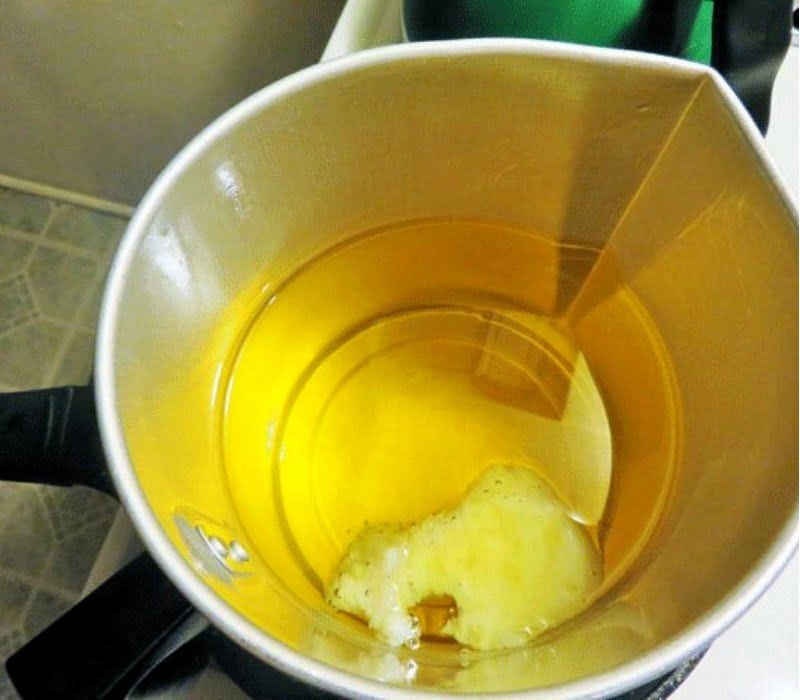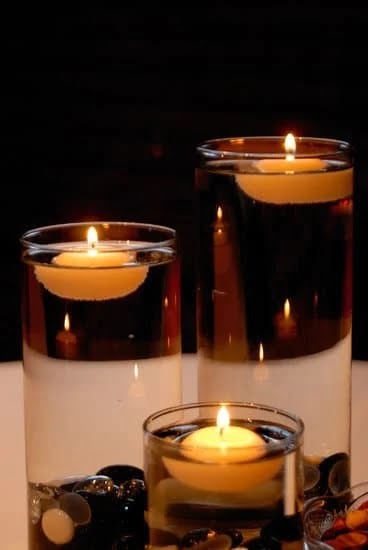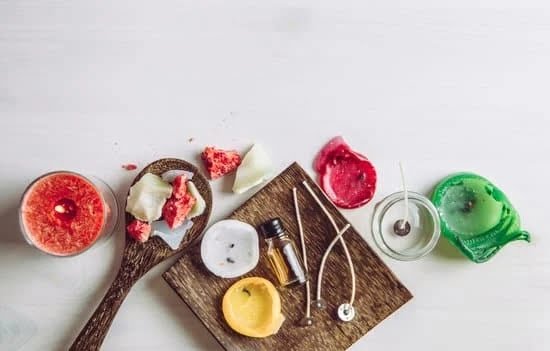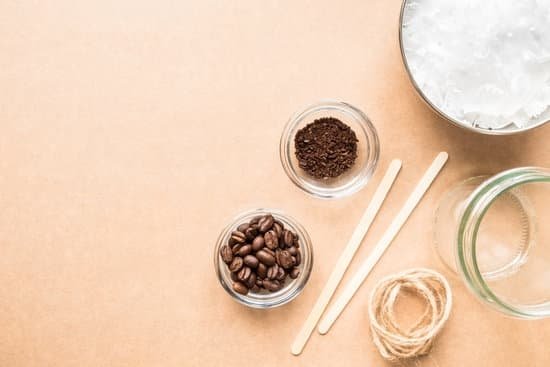Are you looking to elevate your candle making experience? Look no further than the best essential oils for candle making. Essential oils have become a popular choice for adding fragrance to candles, and for good reason. In this article, we will explore the world of essential oils and how they can enhance your candle making process.
When it comes to creating homemade candles, using essential oils can take your craft to the next level. Not only do they add an alluring scent to your candles but they also offer various benefits that synthetic fragrances cannot provide. From promoting relaxation to uplifting moods, essential oils can cater to different preferences and purposes.
In this guide, we will delve into understanding the different types of essential oils available, the benefits of incorporating them into your candle making process, as well as tips and tricks for selecting and using the best essential oils for your candles. Whether you are a seasoned candle maker or just starting out in this hobby, this comprehensive resource will help you harness the power of essential oils in creating delightful handmade candles.
Understanding the Different Types of Essential Oils
When it comes to understanding the different types of essential oils for candle making, it’s important to know that not all essential oils are created equal. There are several categories of essential oils, including citrus, floral, herbal, spicy, and woodsy. Each category offers a unique set of aromas and benefits that can greatly enhance your candle making experience.
Citrus essential oils such as lemon, orange, and grapefruit offer uplifting and energizing scents perfect for creating a refreshing atmosphere in your space. Floral essential oils like lavender, rose, and jasmine provide calming and soothing aromas that are ideal for relaxation and stress relief. Herbal essential oils such as peppermint, eucalyptus, and tea tree offer invigorating and revitalizing scents that can help with respiratory issues and boost mental clarity.
Spicy essential oils like cinnamon, clove, and ginger add warmth and depth to your candles, making them perfect for creating a cozy ambiance during colder months. Finally, woodsy essential oils such as cedarwood, pine, and sandalwood bring earthy and grounding aromas that are great for promoting feelings of stability and connection to nature.
Incorporating a variety of these different types of essential oils into your candle making process allows you to create unique blends that cater to specific moods or occasions. By understanding the different categories of essential oils available to you, you can confidently choose the best essential oils for your candles based on the desired effects you want to achieve.
The Benefits of Using Essential Oils in Candle Making
When it comes to making candles, many people are now turning to the use of essential oils to add fragrance and therapeutic benefits. Essential oils are natural, aromatic compounds found in plants that have been used for centuries for their various healing properties. In candle making, these oils can not only enhance the scent of the candle but also provide potential health benefits when the candle is burned.
Therapeutic Benefits
One of the main advantages of using essential oils in candle making is the therapeutic benefits they offer. Different essential oils have unique properties that can help promote relaxation, reduce stress, uplift mood, improve mental clarity, and even purify the air. For example, lavender essential oil is known for its calming and soothing effects, while eucalyptus essential oil can help clear sinuses and improve breathing.
Natural and Chemical-Free
Another benefit of using essential oils in candles is that they provide a natural and chemical-free alternative to synthetic fragrance oils. Many commercial candles contain synthetic fragrances that may emit harmful chemicals when burned. By using pure essential oils in candle making, you can ensure that you are creating a healthier and more natural product for yourself and your loved ones.
Customization
Essential oils offer endless possibilities for customization when it comes to candle making. You can blend different oils together to create unique scents that cater to your personal preferences or specific aromatherapy needs. Whether you want a calming blend for relaxation or an invigorating blend for energy boosting, using essential oils allows you to tailor your candles to suit different moods and occasions.
Top 5 Essential Oils for Candle Making
When it comes to making scented candles, choosing the right essential oils is crucial for achieving the perfect aroma. With so many options available, it can be overwhelming to decide which essential oils are best for your candle making project. To help you narrow down your choices, here are the top 5 essential oils for candle making:
1. Lavender Essential Oil: Known for its calming and soothing properties, lavender essential oil is a popular choice for candles intended to promote relaxation and stress relief.
2. Peppermint Essential Oil: If you’re looking to create invigorating and refreshing candles, peppermint essential oil is the way to go. Its minty scent can help boost energy and improve focus.
3. Eucalyptus Essential Oil: Eucalyptus essential oil is often used in candles designed to alleviate respiratory issues and promote clear breathing. Its fresh and clean aroma is perfect for creating a spa-like atmosphere.
4. Lemon Essential Oil: For bright and uplifting candles, lemon essential oil is an excellent option. Its citrusy scent can help create a cheerful and refreshing ambiance.
5. Vanilla Essential Oil: Vanilla essential oil adds warmth and sweetness to candles, making it a popular choice for creating cozy and comforting atmospheres.
When choosing the best essential oils for your candle making project, it’s important to consider the purpose of the candle and the desired fragrance profile. Experimenting with different combinations of these top 5 essential oils can help you create unique scents that cater to specific moods or occasions. Whether you’re aiming for relaxation, rejuvenation, or simply a pleasant aroma, these essential oils are sure to enhance your candle making experience.
How to Choose the Best Essential Oils for Your Candle
When it comes to choosing the best essential oils for your candle making, there are a few key factors to consider. First and foremost, it’s important to think about the scent profile you want to achieve.
Whether you’re going for something fresh and uplifting or warm and comforting, different essential oils will help you achieve the desired fragrance for your candles. Additionally, consider any potential therapeutic benefits that certain essential oils may offer, as this can also play a role in your selection process.
Another important consideration when choosing essential oils for your candles is their strength and intensity. Some essential oils are more potent than others, so it’s crucial to use them in the right quantities to ensure that the fragrance isn’t overwhelming or too subtle. It’s also worth noting that some essential oils have a stronger scent throw when used in candles, meaning they will fill a room with their fragrance more effectively.
Additionally, consider the compatibility of different essential oils when creating unique blends for your candles. Some scents may complement each other beautifully, while others may clash and create an unpleasant aroma. Understanding how different essential oils work together can help you create well-balanced and harmonious fragrances for your candles.
| Essential Oil | Main Scent Profile |
|---|---|
| Lavender | Floral, Herbaceous |
| Lemongrass | Fresh, Citrusy |
| Patchouli | Woody, Earthy |
| Sweet Orange | Citrusy, Sweet |
These are just a few examples of the many essential oils available on the market that are perfect for candle making. Remember that personal preference plays a significant role in choosing the best essential oils for your candles – what works well for one person might not work as effectively for another. Experimenting with different scents and combinations will ultimately lead you to discover your favorite fragrances for candle making.
Tips and Tricks for Incorporating Essential Oils Into Candle Making
When it comes to incorporating essential oils into candle making, there are some tips and tricks that can help you get the best results. Whether you’re a beginner or an experienced candle maker, these tips can help you create high-quality, fragrant candles that will delight your senses.
Using the Right Amount
One of the most important things to keep in mind when incorporating essential oils into candle making is to use the right amount. Adding too little may result in a weak scent, while adding too much can affect the candle’s burn time and even cause irritation.
A good rule of thumb is to use approximately 1 ounce of essential oil per pound of wax. However, this can vary depending on the specific oil and your personal preference, so it’s important to experiment and find the right balance.
Timing Is Everything
Another tip for incorporating essential oils into candle making is to add them at the right time during the process. It’s best to add the essential oils when the wax has cooled slightly after melting but before pouring it into the container. This allows the fragrance to blend evenly throughout the wax without being affected by high temperatures. Stirring gently but thoroughly after adding the oils can also help ensure that they are distributed evenly.
Choosing Quality Oils
The quality of essential oils used in candle making can make a big difference in the final product. It’s important to choose high-quality, pure essential oils that are specifically labeled for aromatherapy or fragrance use.
Low-quality or diluted oils may not provide a strong scent and could even affect the performance of your candles. When considering which essential oils to use, consider experimenting with different scents from lavender, eucalyptus, peppermint, lemon or rosemary – all known as some of the best essential oils for candle making.
Common Mistakes to Avoid When Using Essential Oils in Candle Making
When making candles with essential oils, it’s essential to be aware of some common mistakes to avoid. These mistakes can affect the quality and safety of your candles, as well as the effectiveness of the essential oils used. Here are some common mistakes to steer clear of when using essential oils in candle making:
1. Using too much essential oil: It can be tempting to add more essential oil to your candle for a stronger scent, but using too much can actually be harmful. Overloading your candle with essential oil can cause it to burn unevenly, produce excess soot, and even pose a fire hazard. It’s best to stick to the recommended amount of essential oil for the type and amount of wax you’re using.
2. Not properly mixing the essential oil: Essential oils must be thoroughly mixed into the melted wax before pouring it into the candle container. Failing to mix the essential oil properly can result in uneven distribution of scent in the finished candle. This means that some parts of the candle may have a strong smell while others have little to no fragrance.
3. Choosing low-quality essential oils: The quality of the essential oil you use directly affects the quality and scent throw of your candles. It’s important to invest in high-quality, pure essential oils specifically designed for candle making. Using cheap or diluted essential oils may result in weak or unpleasant scents in your candles.
By being mindful of these common mistakes, you can ensure that you get the best results when using essential oils in candle making. Whether you’re a beginner or experienced candle maker, avoiding these pitfalls will help you create beautifully scented candles that bring joy and relaxation into any space.
Essential Oil Candle Recipes for Different Moods and Occasions
Creating your own essential oil candles can be an enjoyable and rewarding experience. Not only can you customize the scents to suit your personal preferences, but you can also tailor them to match different moods and occasions. Whether you want a calming scent for relaxation or an uplifting aroma for a special celebration, there are endless possibilities when it comes to essential oil candle recipes.
For a relaxing evening at home, consider creating a lavender and chamomile essential oil candle. Lavender is well-known for its calming properties, while chamomile adds a soothing and comforting aroma. This combination is perfect for unwinding after a stressful day or setting the mood for a peaceful night’s sleep.
If you’re looking for a fresh and invigorating scent to brighten up your space, try making a citrus-infused essential oil candle. Combining lemon, orange, and grapefruit essential oils can create a lively and energizing aroma that is perfect for boosting your mood on a gloomy day or adding some zest to your home during gatherings with friends and family.
For a romantic dinner or a cozy date night at home, consider crafting a sensual essential oil candle using ylang-ylang, patchouli, and jasmine. These exotic floral scents are known for their aphrodisiac properties and can help set the stage for an intimate and romantic evening.
With the right combination of essential oils, you can easily create custom candles to suit any mood or occasion. Experiment with different blends and get creative with your recipes to discover unique scents that resonate with you. Whether you’re seeking relaxation, energy, romance, or something in between, the best essential oils for candle making allow you to set the perfect ambiance for any situation.
Conclusion and Final Thoughts on the Best Essential Oils for Candle Making
In conclusion, using essential oils in candle making can add a whole new dimension to the experience of creating and enjoying candles. By understanding the different types of essential oils and their benefits, you can choose the best ones for your specific needs and preferences. Whether you are looking for a calming and relaxing scent, an energizing and uplifting aroma, or something in between, there are essential oils that can help you achieve the perfect mood for any occasion.
When choosing the best essential oils for your candles, it is important to consider factors such as the oil’s potency, its compatibility with other oils, and its ability to hold its scent over time. Remember to also take into account personal preferences and any potential sensitivities or allergies among those who will be using the candles.
By following some simple tips and tricks, such as experimenting with blending different oils together or adding them at the right temperature, you can create beautifully scented candles that provide not only a warm glow but also a delightful fragrance.
Incorporating essential oils into your candle-making process allows for endless creativity and customization. From soothing lavender and invigorating peppermint to exotic sandalwood and sweet orange, there are countless possibilities to explore.
With the right knowledge and techniques, you can avoid common mistakes and confidently create your own unique essential oil candle recipes that cater to various moods and occasions. So go ahead, embrace the world of essential oils in candle making, and elevate your space with enchanting aromas that soothe the mind, body, and soul.
Frequently Asked Questions
What Essential Oil Is Best for Candles?
The best essential oil for candles is subjective and depends on personal preference, but popular options include lavender, rosemary, peppermint, and citrus oils like orange or lemon. These oils can add a pleasant aroma to the candle when burned.
What Is the Best Oil for Burning Candles?
The best oil for burning candles is typically fragrance oil specifically designed for candle making. These oils are formulated to disperse evenly throughout the wax and provide a strong scent throw when the candle is lit. Fragrance oils come in a wide variety of scents to suit different preferences.
How Do I Make My Candles Smell Stronger?
There are several ways to make candles smell stronger. One method is to use a higher concentration of fragrance oil in the candle wax.
Another option is to let the candle cure for a longer period of time before burning it, as this allows the scent to fully incorporate into the wax. Additionally, placing the candle in a smaller room or enclosed space can help enhance its scent throw.

Welcome to my candle making blog! In this blog, I will be sharing my tips and tricks for making candles. I will also be sharing some of my favorite recipes.





